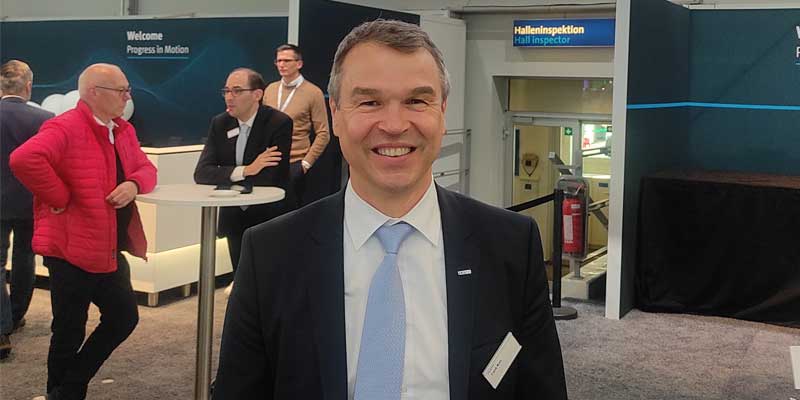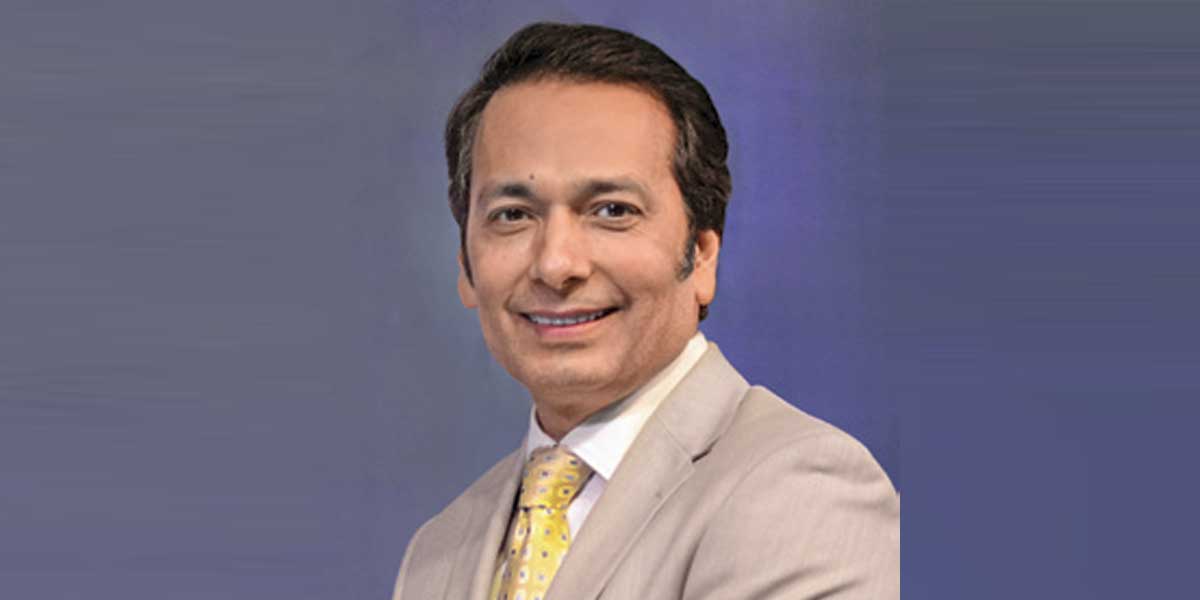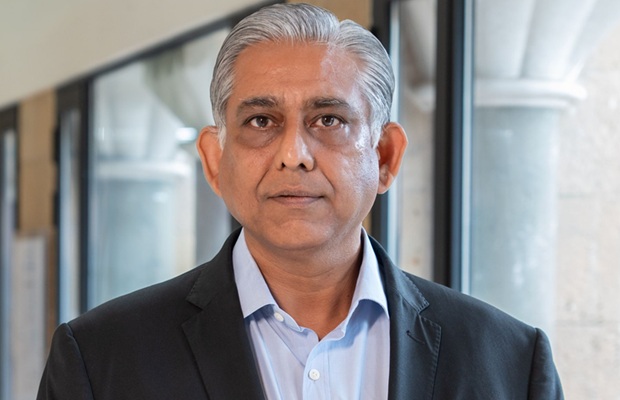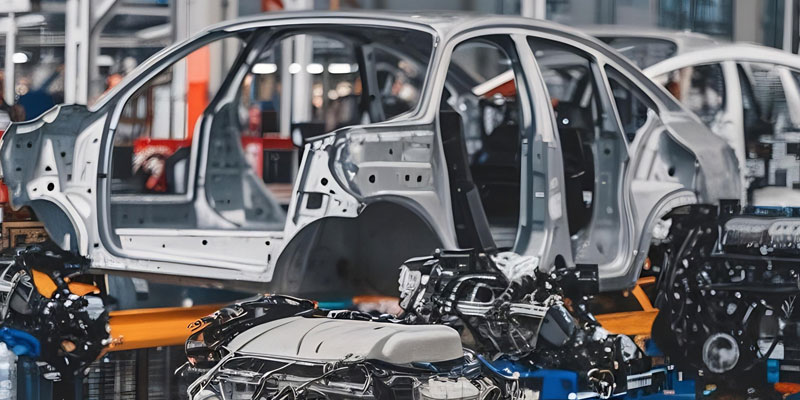Schedule a Call Back
Frank Notz: Festo sees India very positively and continues to invest in it
 Articles
Articles- May 02,24

Artificial intelligence (AI), as part of industrial automation process, is increasingly being applied in manufacturing to enhance production and quality while keeping environment in mind. Esslingen (Germany) headquartered Festo - known for producing pneumatic & electrical control systems, and drive technology for process automation - has been providing solutions to drive the industrial transformation towards carbon-neutral, sustainable production. In this interview with Rakesh Rao during Hannover Messe 2024, Frank Notz, Member of the Management Board - Sales, Festo SE & Co KG, emphasised on the importance of investing in AI, battery recycling, circular economy, and hydrogen technology. He also shed light on Festo’s India plans.
What has changed in the last one year for the industry?
There have been multiple changes with respect to technology and we are seeing much more consequent application of artificial intelligence (AI). We offer simple solutions that can easily be adapted to existing manufacturing set-up in many different use cases. One is, of course, predictive maintenance and quality, but we also apply it in the B2B environment, which is something really innovative. I think we have done a lot to understand our customers better and, therefore, we can also provide better solutions using AI, which has really developed in the recent years.
Hydrogen has emerged as a hot topic of discussion across the world. It is a highly dynamic market and customers are trying something new to improve efficiency of production, storage & transportation, applications, etc. Battery recycling is gaining momentum as the industry embraces the circular economy with a clear intent to save the environment and raw materials, which are expensive and little scarce. So we are getting into battery recycling.
Biotechnology is becoming the next big thing. Companies are adopting biotechnology to provide solutions for challenges related to food, healthcare, energy, etc. It has the potential to produce organs (for organ donation) and to provide customise medication. It’s a matter of scale now. Bioreactors play a big role in the success biotech with bioreactors of different sizes (miniature to very large size) being built. This is the next big thing in terms of automation.
So, there are new things, new markets which is good news. At the same time, limitation of workforce availability is triggering adoption of automation. It is a very interesting environment and a lot of things are changing.
What is the highlight of Festo at Hannover Messe 2024?
When we look really into the future, we have found a very interesting concept of how potentially hydrogen can be stored for transportation looking really long term into the future.
In the short term, we are offering our customers AI and other smart software solutions that can help them to achieve maximum flexibility and increased efficiency in their production processes. Many of our solutions are based on the open architecture principle so that they can be fitted into any environment. These are AI-powered tools that can help to integrate all functions, collect data, provide decentralised solution, etc.
How big the opportunity is in the battery recycling space?
When you look at the process, there are two fundamental things relevant. First, is the automatic disassembly of the battery and second is the manufacturing process from battery cells to milling to basically process (chemical) industry methods. This is a normal automation and not much of a challenge; now, it is more about heavy investments that is coming into this space.
At present, we still see 30-40 per cent of the cells produced are not of good quality; thus, there is a lot of strap produced at the cell manufacturing stage. Sooner or later, because of circular economy, recycling plant will become a pre-requisite right next to the giga factory, which requires investment of millions of dollars. Recycling waste will be a profitable proposition for them.
How are you gearing up to tap the hydrogen industry?
Hydrogen, which is expected to play a key role in the future energy landscape and in the decarbonisation of energy-intensive industries, is a very interesting space. On one side you have established players (who have been dealing with industrial gases), on the other side you see a lot of start-ups who are working on solutions that can increase the usage of hydrogen in lot of new applications. Green hydrogen is very much relevant for India to produce eco-friendly steel, so you will have hydrogen unit close to steel mills. Here investments are already being made by industry players.
Companies are still experimenting with usage of hydrogen in transportation or household application, and there is still some uncertainty. But, one thing is clear that hydrogen is the media where you can store green electrical energy.
Festo has broad portfolio of solutions to support the industrial transformation of the hydrogen sector with the right technological innovations. This market has a huge potential.
How do you see India as a market?
In short and mid-term, we see India very positively. India is very well positioned in receiving foreign investments as it has a good combination of accessibility to latest technology and talented labour force, which has open mind-set. India will benefit a lot with everybody applying the concept of “local for local” or “regional for region”. Companies have realised the need to have supply chains more resilient in all dimensions and directions, which will certainly benefit India. That's why Festo has invested heavily in India and continues to do so.
We are building a new plant in India at Hosur, Tamil Nadu, and will bring a broad set of products to meet local requirements. The new plant, which is close to the main Indian site in Bengaluru, will create the conditions for further growth in India over the next few years and help us to secure the supply chain for the entire Asian market. The first phase of the new plant is expected to become operational next year.
We are looking at new demand trends and will manufacture as much as possible in India. We already have a lot of process automation related products in India, and along with manufacturing tasks we also bring engineering solutions that are the key. If you really want to be successful in markets, you need to offer end-to-end solution from engineering to manufacturing to your customers.
We want to expand capacity and the product portfolio with the new plant, which will manufacture automation products like cylinder valves, process equipment, etc. Though it will primarily cater to the requirements of the domestic market, the plant will also export products.
With the Indian government providing lot of incentives for local manufacturing, what it means to companies like Festo?
Access to technologies and governmental support programs present a good environment for start-ups who use their brain power to find a smart way to invent something new. It is important for us to be close to this environment. Not all of these start-ups will become a large size company, but it is important to listen to them as they have many smart ideas, which can be potentially good business proposition for the future.
From Festo’s perspective, we just follow our customers. India is gaining prominence in the manufacturing space and global companies are looking at it as a reliable sourcing partner. As Indian companies invest in new ideas and technologies, it presents good opportunity to us for growth. Being closer to the market, we can understand the requirements of our customers much better and provide solution faster.
Related Stories

Rewarding Manufacturing Resilience
Effective January 1, 2026, Mexico imposed import duties ranging from 5 per cent to 50 per cent on a broad set of goods from non-free trade agreement (FTA) countries, including India, China, South Ko..
Read more
Engineering India’s Next Phase of Growth with Responsibility: Amit Sharma
Amit Sharma, MD and CEO, Tata Consulting Engineers (TCE), outlines TCE's strategy to support India’s next phase of industrial growth through integrated engineering, nuclear and digital capabilitie..
Read more
EV transition and tariff wars redefine India’s auto components play
India’s auto component industry is poised to hit $ 145 billion by FY30 from $ 80 billion in FY25. Yet high US tariff, EV transition and heavy reliance on imports from China expose vulnerabilities,..
Read moreRelated Products

Fanless Industrial Pc for Smart Manufacturing
CONTEC Launches BX-M4600 Series - Fanless Industrial PC for Smart Manufacturing.












